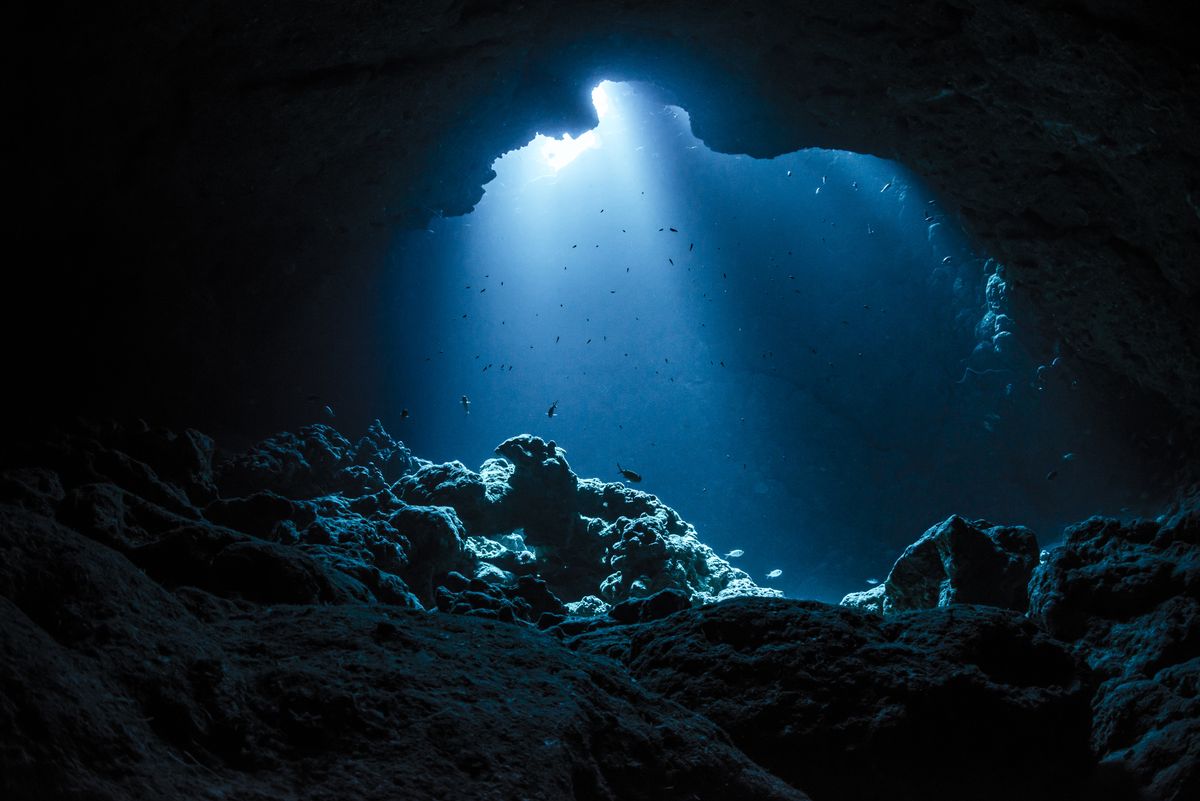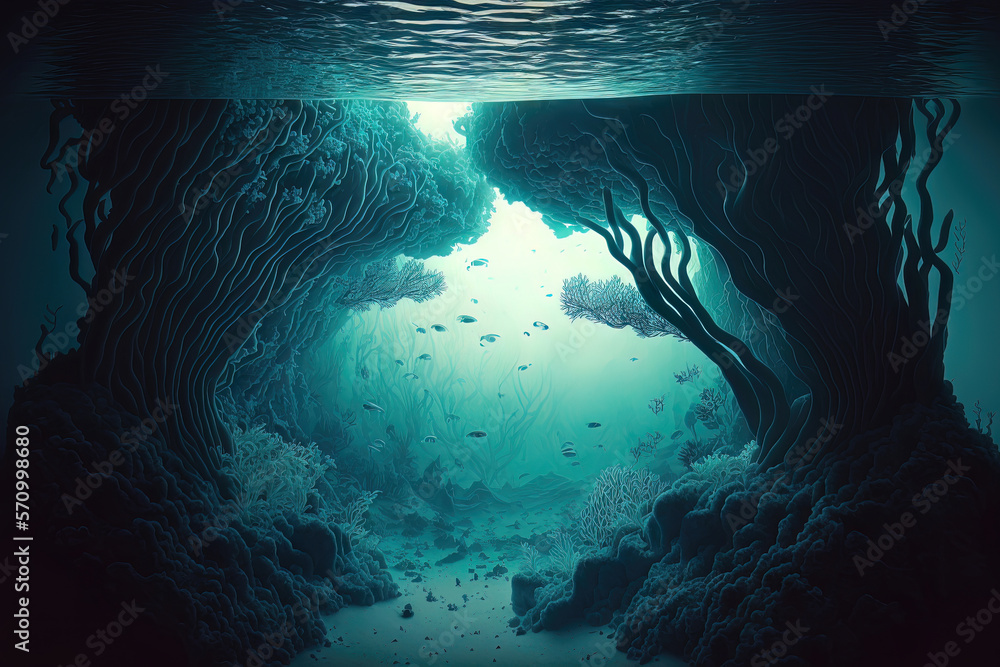Understanding The Deep Horizon Water Event: A Look Back And Forward
Fifteen years ago, in April 2010, the world watched as a massive environmental disaster unfolded in the Gulf of Mexico. The Deepwater Horizon oil rig, a giant structure out on the open sea, experienced a terrible explosion. This event, so it seems, led to a gush of oil into the ocean that continued for many weeks.
The incident caused a profound impact on the Gulf's delicate marine life and coastal communities. We are still, perhaps, working to grasp the full extent of the changes brought about by this significant spill. It’s a moment that reminds us how connected we are to the natural world, particularly its vast, deep waters.
This discussion will explore the meaning of the "deep horizon water" event, looking at its consequences and what we have learned. We will consider how the ocean, extending far down from the surface, was affected. It's a story of challenge, recovery, and the ongoing effort to protect our planet's precious water.
- Mexico Contra Argentina
- Ayo Edebiri Irish
- Best Fragrances For Every Occasion Lumolog
- Burn Movie Chair Scene
- Tiktok 下载 国际 版
Table of Contents
- The Deepwater Horizon Incident: Unfolding
- Immediate Impacts on the Deep Horizon Water
- Long-Term Consequences for the Gulf
- Cleanup Efforts and Scientific Inquiry
- Lessons Learned and Future Safeguards
- Deep Horizon Water: A Lasting Memory
- Frequently Asked Questions about the Deep Horizon Water Event
The Deepwater Horizon Incident: Unfolding
The Deepwater Horizon rig, a semi-submersible offshore drilling unit, was operating in the Gulf of Mexico. It was, you know, drilling an exploratory well for BP. On April 20, 2010, something went terribly wrong.
An explosion ripped through the platform. This fiery event tragically took the lives of 11 crew members. It also caused a massive oil spill, which became the largest offshore oil spill in the history of the United States.
For 87 days, oil poured into the Gulf. An estimated 3.2 million barrels, or about 134 million gallons, of crude oil escaped. This flow came from a damaged wellhead, located a mile below the surface of the ocean. It was a truly significant amount of oil.
- Male Twist Hairstyle
- Ivy Harper Spiderman
- Mango Ice Cream Korean
- Golden Retriever Puppy Siblings Tired
- First Date Dti
The event drew considerable attention from around the globe. People watched with concern as the oil spread across the deep horizon water. The images of oil on the water's surface, as seen on May 20, 2010, a month after the spill started, were quite stark.
Immediate Impacts on the Deep Horizon Water
The immediate effects of the oil spill on the water were, well, visible and very concerning. Oil covered vast areas, creating a sheen that stretched for miles. This was just the start of the problems.
Oil on the Surface and Below
Crude oil and chemical dispersants spread across the water's surface. These materials also moved into the water column below. Some of the oil formed deep underwater plumes.
These plumes were, in a way, like hidden rivers of oil. They traveled through the deep water, affecting areas far from the immediate spill site. The presence of oil at such depths posed unique challenges for cleanup and observation.
The deep ocean, extending far down, was suddenly filled with this foreign substance. It truly showed how something happening at the surface could reach into the profound depths. Scientists worked to understand how these deep currents moved the oil.
Effects on Marine Life
Marine animals faced immediate danger. Birds, dolphins, sea turtles, and fish encountered the oil. Many animals became covered in the sticky substance, making it hard for them to move or find food.
The oil also harmed their internal systems. It caused, you know, respiratory problems and organ damage. Smaller organisms, the base of the ocean food web, also suffered greatly.
The effects were particularly worrying for creatures living in the deep water. Deep-sea corals, for instance, showed signs of damage. These ecosystems are very fragile and grow quite slowly.
Long-Term Consequences for the Gulf
Even after the initial cleanup, the Deepwater Horizon event continued to shape the Gulf of Mexico. The long-term consequences are, in some respects, still being studied. It's a complex picture.
Ecosystem Changes
The spill caused significant changes to the Gulf's ecosystems. Some fish populations saw declines. Certain marine mammals experienced higher rates of illness and death.
The deep-sea habitats, which are, you know, very unique, faced lasting impacts. Scientists are still working to understand the full extent of these changes. They are trying to figure out how long it will take for these deep-water environments to recover.
The Gulf, a vibrant place, had to contend with these serious alterations. It shows how much our actions can affect these vast natural systems. The water, after all, connects so much.
Coastal Communities and Livelihoods
People living along the Gulf Coast felt the effects deeply. Fishing industries, for instance, suffered greatly. Many fishing grounds were closed, and seafood sales dropped.
Tourism also took a big hit. People were hesitant to visit beaches that might have oil on them. This affected many small businesses and families who rely on the ocean for their income.
The spill created a sense of uncertainty for these communities. It was, you know, a very difficult time for many. The recovery of these human systems is as important as the natural ones.
Cleanup Efforts and Scientific Inquiry
The response to the Deepwater Horizon spill was, quite frankly, immense. It involved a huge number of people and resources. The focus was on containing the oil and starting the process of healing.
Response and Restoration Projects
Crews worked tirelessly to clean up the oil. They used various methods, including booms to contain it and skimmers to remove it. Dispersants were also used, though their long-term effects are still debated.
In 2011, one year after the spill, BP agreed to provide up to $1 billion toward early restoration projects. This was a step toward helping the Gulf recover. Over the years, billions more have been committed to restoration.
NOAA, for example, played a critical role in the initial response. They helped with the assessment and the development of a restoration plan. This kind of coordinated effort is, you know, really important.
The Role of Science in Understanding Deep Challenges
The spill spurred a significant push in scientific study. Researchers sought to better understand how oil behaves in deep water. They also looked at its effects on various marine species.
This event challenged the spill response community. It drove advancements in science. The goal was to better prepare for future incidents, if they should happen.
Understanding the profound impact required, in a way, a "deep seeking" of knowledge. Much like DeepSeek, a company founded in 2023, focuses on researching leading artificial intelligence models and tackling frontier AI problems, the scientific community embarked on a similar intense exploration. They used their resources to gather data and develop new insights into the deep ocean's complex systems.
Scientists are still studying the spill's effects, even 15 years later. They are learning more about the ocean's resilience and its vulnerabilities. This ongoing research is, you know, very valuable.
Lessons Learned and Future Safeguards
The Deepwater Horizon event brought about serious discussions about safety in offshore drilling. It highlighted the dangers that exist when we extract natural oils from the ground. There were, naturally, calls for change.
Changes in Offshore Drilling
The spill drove some changes in regulations for offshore drilling. The aim was to prevent similar disasters from happening again. This included stricter safety protocols and better oversight.
Companies involved in deepwater operations had to review their practices. They needed to ensure, you know, that their safety measures were truly robust. The industry had to adapt to new expectations.
Transocean Deepwater Inc., the Deepwater Horizon’s owner and operator, pleaded guilty to violating the Clean Water Act. They were sentenced to pay $400 million in 2013. This showed the serious consequences for such actions.
Preparing for Future Incidents
The disaster also improved how we prepare for and respond to oil spills. Agencies like NOAA refined their response plans. They developed better ways to assess damage and plan for restoration.
There is a greater awareness of the need for quick and effective action. This includes understanding how to manage oil and dispersants on the water's surface. It's about being ready for anything.
Even so, the dangers of offshore drilling still remain. We continue to rely on extracting natural oils. This means, you know, that vigilance and ongoing improvement are always necessary.
Deep Horizon Water: A Lasting Memory
The story of the Deepwater Horizon oil spill, and its impact on the deep horizon water, is a powerful one. It reminds us of the delicate balance between human activity and the natural world. The 2016 biographical disaster film, "Deepwater Horizon," also brought this harrowing story to a wider audience.
This event, 15 years ago this April, continues to shape our understanding of ocean protection. It highlights the importance of responsible energy practices. It shows, too, that even the deepest parts of our oceans are vulnerable.
The efforts to heal the Gulf continue. They represent a collective commitment to safeguarding our planet's vital resources. This commitment is, you know, very important for all of us.
To learn more about the Deepwater Horizon event and its lasting effects, you can visit the NOAA Ocean Service website. It provides additional insights into the scientific response and recovery efforts.
You can also learn more about environmental protection efforts on our site. And to see how we are working to understand complex systems, perhaps you might find interest in the challenges faced by those exploring new frontiers, just like this page explores advanced research.
Frequently Asked Questions about the Deep Horizon Water Event
How much oil was spilled from Deepwater Horizon?
An estimated 3.2 million barrels of oil escaped into the Gulf of Mexico. This is roughly 134 million gallons. It poured out for 87 days from the damaged wellhead.
What were the long-term effects of the Deepwater Horizon oil spill?
The long-term effects include changes to marine ecosystems, like declines in certain fish populations. There were also impacts on coastal communities and their livelihoods. Scientists are still studying the full scope of these changes, too it's almost a constant learning process.
Has the Gulf of Mexico recovered from the Deepwater Horizon oil spill?
While significant cleanup and restoration efforts have taken place, the Gulf of Mexico is still in a process of recovery. Some ecosystems are showing signs of healing, but others, especially in the deep ocean, may take much longer to return to their previous state. It’s a very slow process.



Detail Author 👤:
- Name : Dax Davis
- Username : zboncak.oma
- Email : norberto.von@kilback.com
- Birthdate : 1975-07-02
- Address : 11358 Hailie Street Friedrichborough, NH 63407-8761
- Phone : (972) 319-0729
- Company : White LLC
- Job : New Accounts Clerk
- Bio : Sit necessitatibus explicabo occaecati velit qui dolor. Commodi facilis non et quaerat cupiditate consequatur. Ut et et cum architecto consequuntur.
Socials 🌐
linkedin:
- url : https://linkedin.com/in/mireille.prosacco
- username : mireille.prosacco
- bio : Magni accusantium adipisci sit.
- followers : 3608
- following : 92
facebook:
- url : https://facebook.com/mireilleprosacco
- username : mireilleprosacco
- bio : Laborum voluptatibus id velit iure. Inventore eos minus omnis.
- followers : 5904
- following : 564
twitter:
- url : https://twitter.com/mireille_xx
- username : mireille_xx
- bio : Sint omnis est neque voluptatum. Totam assumenda qui sit quod inventore sit. Est dignissimos accusamus pariatur incidunt.
- followers : 3707
- following : 2570